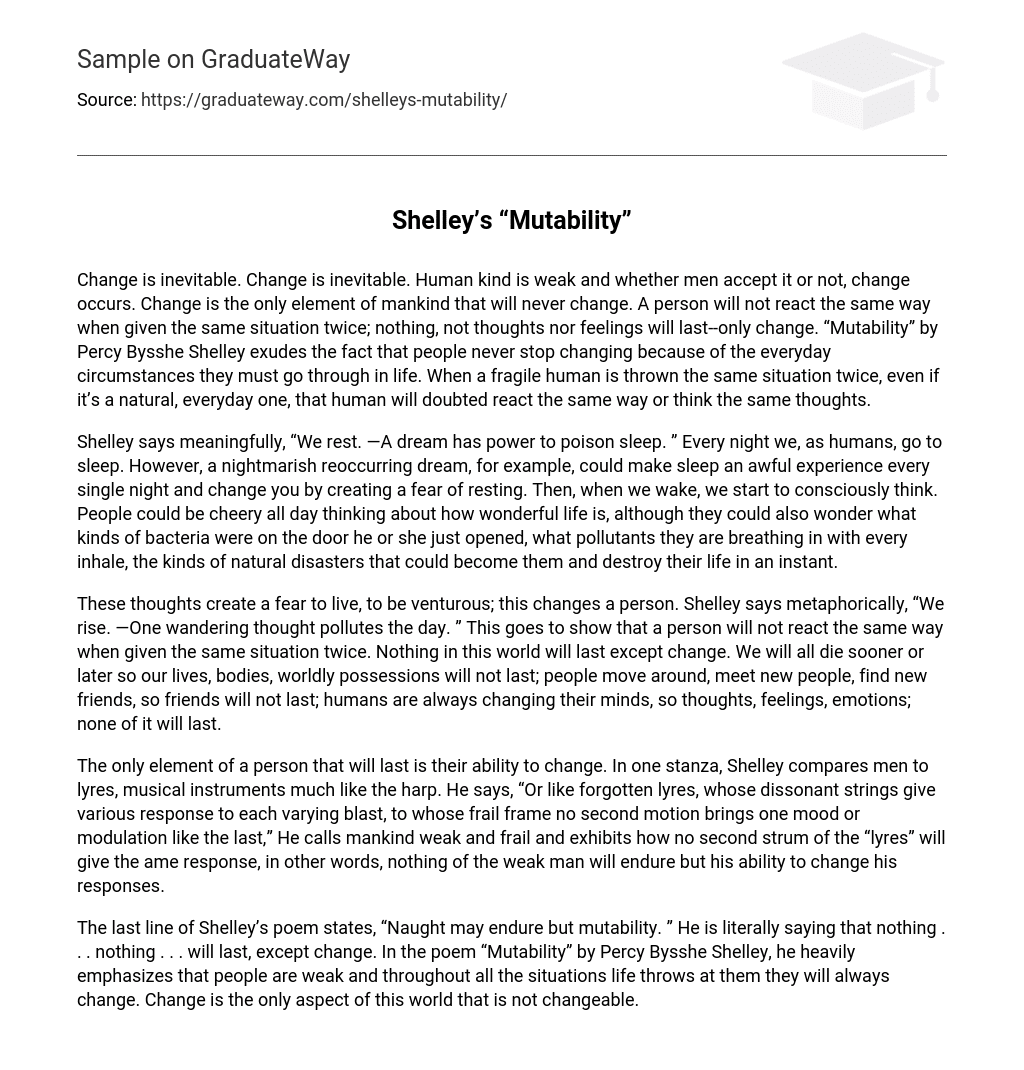The text emphasizes the inevitability of change in human society. It highlights that change is a constant element of mankind that will always persist. It also discusses the idea that individuals do not react or think in the same manner when faced with a repeated situation. The poem “Mutability” by Percy Bysshe Shelley serves as evidence of this concept, as it portrays the continuous change experienced by people due to their daily life circumstances. Even when confronted with familiar, ordinary situations, humans will invariably respond and think differently each time.
Shelley speaks with intent, stating, “We rest. —A dream has the ability to taint sleep.” Every evening, human beings engage in the act of sleeping. However, if an unsettling recurring dream occurs, it has the capacity to transform sleep into a terrifying ordeal each and every night, ultimately impacting an individual by instilling a fear of resting. Upon awakening, we begin to consciously contemplate our thoughts. Throughout the day, individuals may remain cheerful as they ponder upon the beauty of life. Alternatively, they may also ponder about the bacteria that could be lurking on the door they just opened, the pollutants they unknowingly inhale, and the potential natural disasters that could abruptly end their existence.
These concepts instill a fear of living and taking risks, leading to personal transformation. Shelley figuratively states, “We rise. —One wandering thought pollutes the day.” This illustrates that individuals do not respond similarly when confronted with the same circumstances. Change is the sole constant in this world. Ultimately, death is inevitable, rendering our lives, bodies, and material possessions transient. People relocate, encounter new individuals, and form new friendships, causing friendships to be impermanent. Humans consistently shift their perspectives, therefore thoughts, emotions, and feelings lack permanence.
The enduring quality of a person lies solely in their capacity for change. In a stanza, Shelley draws a parallel between men and lyres, musical instruments akin to harps. He asserts, “Or like forgotten lyres, whose dissonant strings give various response to each varying blast, to whose frail frame no second motion brings one mood or modulation like the last.” Shelley portrays mankind as feeble and delicate, illustrating how the “lyres” will never produce the same response with each subsequent strum. In essence, what remains of the weak individual is their ability to adapt and alter their reactions.
In Shelley’s poem “Mutability,” he conveys the message that nothing but change is permanent. The line “Naught may endure but mutability” emphasizes this idea. Shelley suggests that individuals are fragile and will inevitably undergo transformations in response to life’s challenges. Essentially, change is the sole constant in an ever-changing world.





